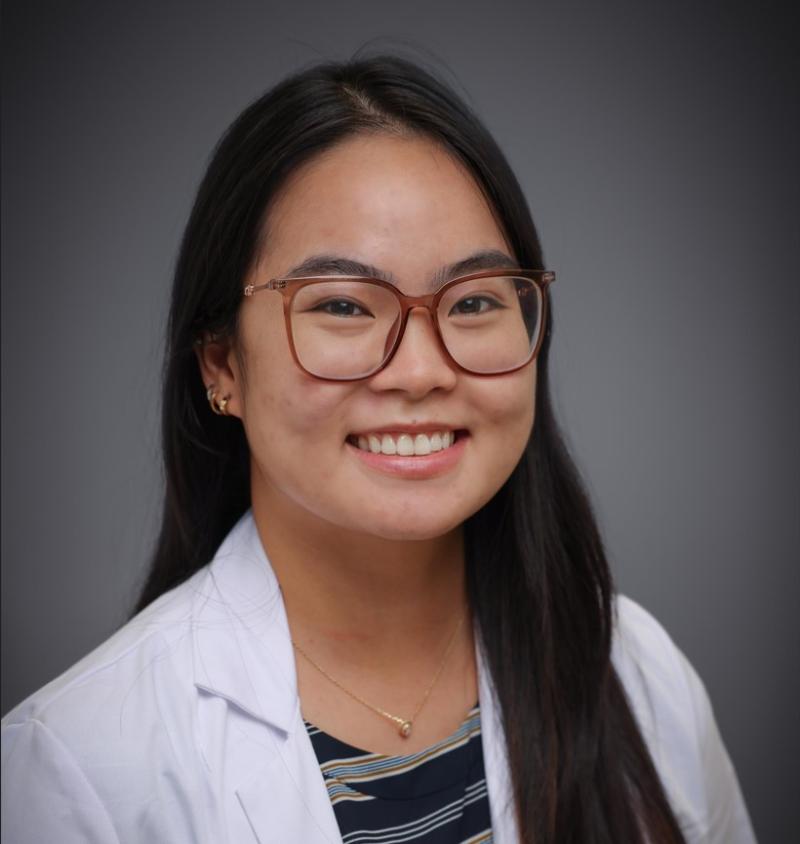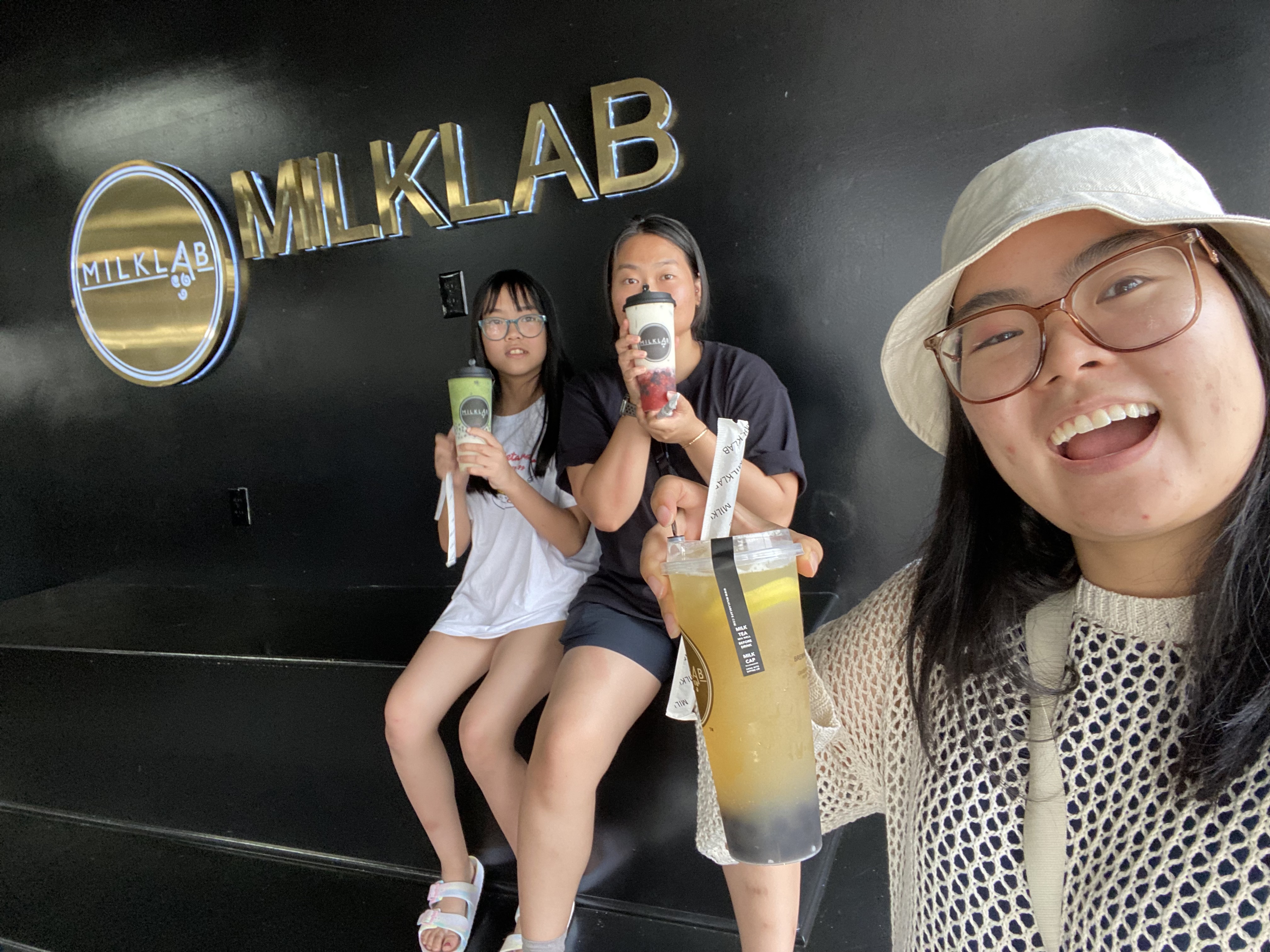
When Nhu-y Phan, MD, became the first member of her family to complete college and then medical school, she felt a range of emotions. Feelings of pride, gratitude, and accomplishment mixed with a sense of responsibility to provide care to her local Vietnamese community, as well as fear stemming from the challenges of providing compassionate, holistic care to these populations.
When it came time to select a residency, Phan chose neurology as a field where she could do the most good. In her Spotlight interview, Phan talks to us about her responsibilities as a second-year resident. She also shares her hopes for a career connecting with, and advocating for, local communities to provide them with holistic care. Finally, Phan talks about her hobbies of finding new restaurants and bubble tea shops and relaxing with reality television when she’s not at Duke.
What are your current responsibilities as a Junior Assistant (PGY-2) Resident? What does a typical workday look like for you?
I consider PGY-2 as an intern year plus. I’m learning about the logistics of putting specific neurology orders, but also taking on new responsibilities including ownership of my patients through the continuity clinic, being a teacher for those rotating through, and building my neurology knowledge base.
The typical workday for outpatient is usually 8 a.m.-5 p.m. and inpatient is 7 a.m-7 p.m. It varies on which rotation I am on. I started with electives such as neuro-immunology, movement, and headache. This has been great as I get to be exposed to the workflow of the outpatient clinic while learning about the different subspecialties of neurology and be able to bring that knowledge with me to the ward. I got to see DBS programming and Botox, participate in the amazing multidisciplinary ALS and Huntington's clinic, and work with veterans with multiple sclerosis.
How and when did you first get interested in neurology? What disciplines or parts of neurology interest you the most?
My interest in neurology stems from my fear of it. Being the first person in my family to graduate from college and being the first physician is a success, but it comes with a lot of responsibility and the burden of being a leader not only in my family, but my local Vietnamese community.
In my first year of medical school, I read The Spirit Catches You, and seeing how the Hmong community described seizures resonated with me. I realized that despite the many resources and initiatives to provide patients with the appropriate translator there are still challenges in providing holistic care for those who come from different backgrounds and cultures.
For example, I think of my mom who was pulled out from 2nd grade so that she could take care of her family. She rarely goes to the doctor, and the times she would go she would nod her head in agreement but would come home and 100% not know what happened. It's been a continual struggle to even tell her and so many of her friends that they can't share antibiotics with each other.
So, neurology attracted me in that neurological diseases are the most complicated to explain when there are so many different understandings of it, and I think about if any of my family members were to have a neurological disease, how would I be able to explain it to them so that it makes sense to them. I want to be one of the nails in the bridge that closes the gap between patients and neurological care.
What plans do you have for after your residency? If you could have any job in the world, what would it be?
I am currently interested in stroke and neurodegenerative diseases but still open to other subspecialties. It’s hard for me to imagine what the ideal job is. as it would change with my interest, but whatever that might be, I want to be in a position that is connected to the community that I am serving.
Being able to teach and provide support for patients to be their own advocate in the medical system is crucial and being able to utilize the strength of what is already present in the community makes sense. I am not there to reinvent the wheel or push initiatives that do not actually serve a purpose. I can envision meeting with non-profit organizers, religious leaders, and support groups to get a sense of what the community needs and being able to share my medical knowledge to see what areas we can improve together.
What’s one experience from your internal medicine year that’s stood out as particularly memorable or helpful for you?
The first day of my intern year. I was lucky to get the wonderful cardiology nights and I remember being so afraid and scared. Even the idea of ordering Tylenol frightened me, let alone taking care of 20+ patients and admitting them.
Going in at 7 p.m. and getting signout was a blur and an out-of-body experience for me as I was thinking "What am I doing here?". Fast forward to 7 a.m., and the patients and I survived. I think from that night I realized that I will always be afraid, but I had support from my peers and upper levels. I was never truly alone and medicine is a team effort. I was forced to lean into my fear and I was surprised by my capacity.
What other passions or hobbies do you have outside of the Department?
I enjoy watching reality TV shows such as 90-day fiancé, Real Housewives, and Vanderpump Rules. Otherwise, I am a big foodie and love trying new restaurants in the Triangle as well as taking leisurely walks in shaded paved paths. I'm always on the hunt for new bubble tea shops and cafes.
